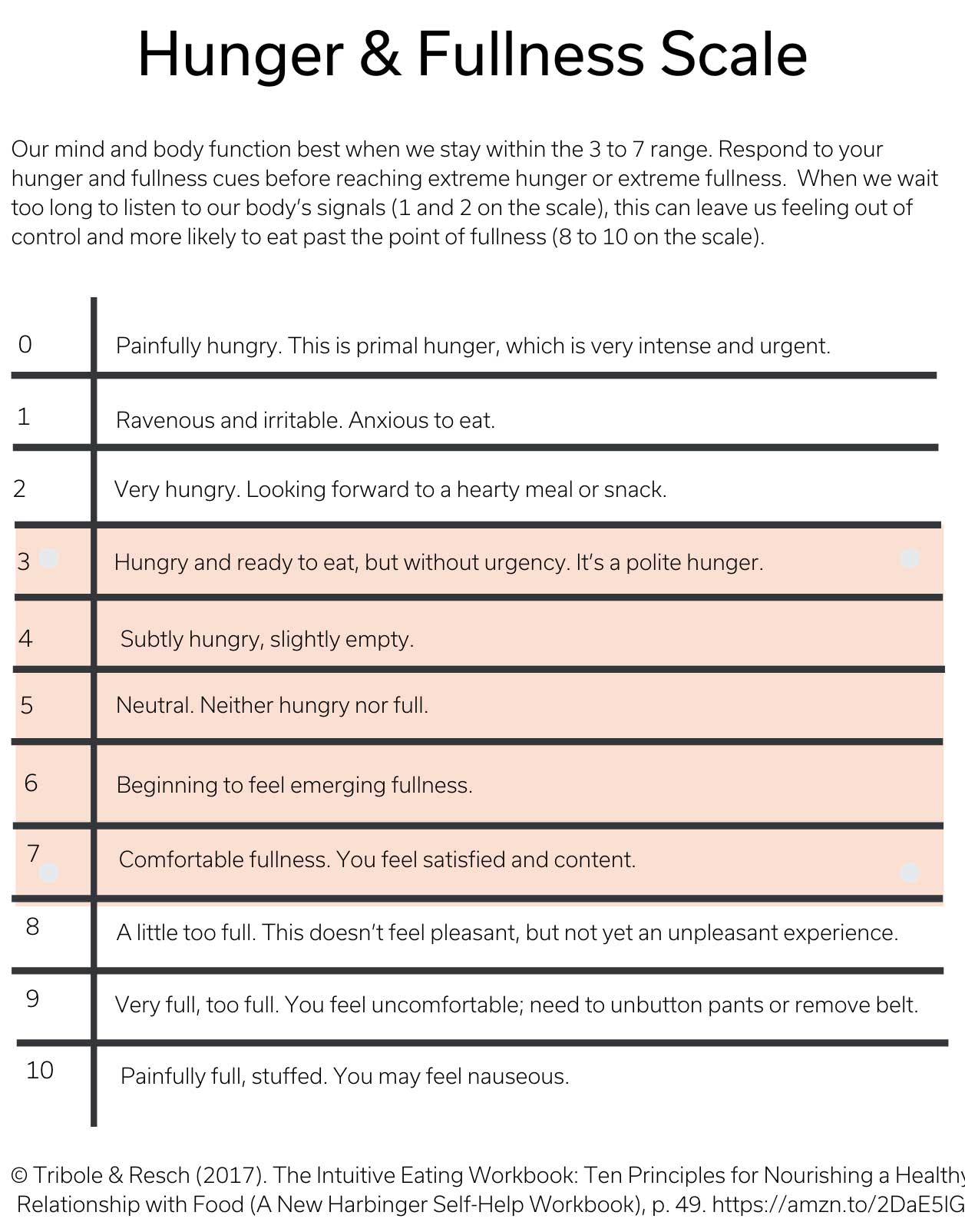
Hunger and fullness
Hunger is normal!
Food is essential to our survival. We have a powerful biological drive to eat.
When hunger is denied...
- hunger signals can fade away
- our body lowers its energy requirements
- we are disconnected from our true needs
- the belief that we can't trust ourselves around food is reinforcedBegin
Lost the signal?
There are several factors that interfere with our hunger signals. They include dieting, busy lifestyle, skipping breakfast, heavy caffeine consumption, certain medications and stress.
How to honor hunger
- Begin to listen for it and recognize the signals.
- Don't let yourself get overly hungry.
- Tune in to the direct experience of your body.
- Be patient. Don't panic. Use the Hunger & Fullness Scale.
Feeling your fullness
Many of us cannot recognize comfortable fullness.
Reasons may include:
- history of dieting mindless or emotional eating
- eating when overly hungry being taught to clean your plate
- respecting the economics and value of food
- experience with food insecurity
How fullness works
- The brain and digestive system communicate to regulate fullness
- When you eat, nerve receptors in your stomach send signals to the brain that you are starting to feel full.
- This feedback loop takes time. It can take 20 to 30 minutes tofeel your fullness.
Important reminder
The ability to respect your fullness requires giving yourself permission to eat all foods. How can you stop eating in response to fullness when you believe you won't be able to eat that food again?

